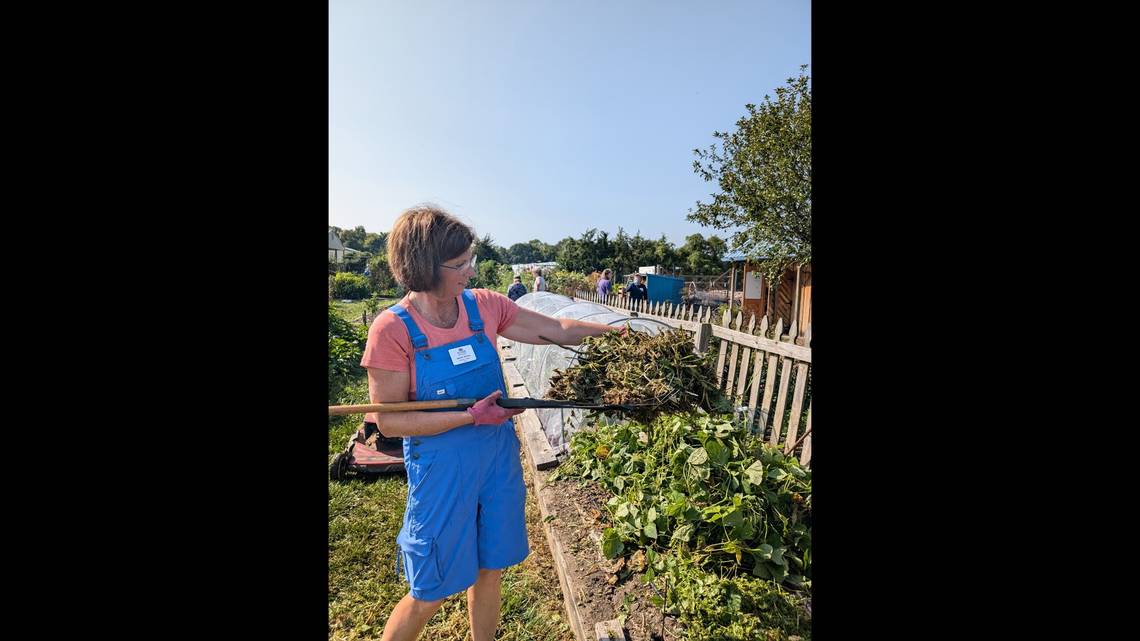
As cooler days set in, vegetable gardeners may be working on extending their cool-season harvest, cleaning out beds or amending their soil. Although production is slowing, these gardeners know that cleaning out garden beds plays a pivotal role in preparing for the next growing season. Apart from a more workable garden, several critters can find homes within plant debris that ultimately inhibit garden performance, including damaging insects, fungal diseases and even wildlife. Because of this, knowing how to address this plant debris correctly is pivotal.
In a perfect world, the spent plant debris would always be repurposed in compost or reworked into the soil. This proactive approach not only keeps nutrients cycling within the food and soil cycles but also keeps unneeded waste out of rapidly filling landfills and decreases the need for costly inputs that can often be less environmentally friendly. However, the caveat is that the debris must be in good condition to be used in safely.
Remember what issues your garden has faced this season as you begin removing debris and allocating its final disposal method. If a severe insect infestation or fungal plague has infested your garden this year, it is likely better to fully dispose of those plants than to work them back into the soil or to use them as brown matter for compost.
While the purpose of composting should address some of these issues (the cooking and breaking down of organic matter will partially sterilize much of the added components), it is never going to decompose efficiently enough to sterilize all pest eggs, fungal spores, and disease introduced to it through infected plants. As such, it is best practice to completely omit plant matter infected with these from compost so as not to run the risk of contaminating the compost, then later spreading the pests with it.
If able to, (fully accounting for local laws, regulations and safety and health concerns), many gardeners will take to burning this infected plant matter as an efficient method of sterilizing the pest pressure and disposing of the plant matter, without needing to introduce it to a landfill.
This should be done carefully. Rememer that overwintering bees may also be present in the spent canes, stalks and leaves of the garden debris. As such, the effort should be made early in the fall season, long before the bees begin settling into their winter hiding places. Then, remember as well, ash raises soil pH, so it is best to keep it away from gardens prone to leaning alkaline. If you have questions about your soil pH, consider adding a soil test to your fall checklist. Our Johnson County Master Gardeners Hotline can answer questions you may have about that process at 913-715-7050.
Lastly, if your garden is prone to wildlife issues with mice, voles, rabbits, etc., remember that unremoved garden debris is likely drawing them in as a place of shelter. Debris removed incentivizes them to go elsewhere to overwinter, leaving fewer issues to be addressed when the growing season returns. This simple step taken now will improve your garden’s chances of a healthy and productive growing season to come.
Anthony Reardon is a horticulture agent with Kansas State University Research and Extension. Need help? Contact the Johnson County Extension gardening hotline at 913-715-7050 or email garden.help@jocogov.org.
EMEA Tribune is not involved in this news article, it is taken from our partners and or from the News Agencies. Copyright and Credit go to the News Agencies, email news@emeatribune.com Follow our WhatsApp verified Channel



